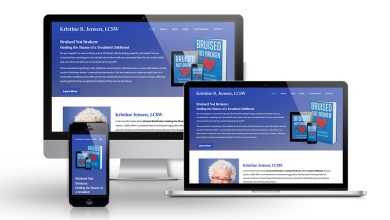Everything That You Need to Know About Accounting Course

After delving into the technical nuances of accounting and honing other skills needed in an accounting job, such as public speaking and information systems, an Accounting Course student receives a solid education in business administration. Students interested in accounting should be drawn to numbers, financial information communication, corporate finance, software programs and data analytics.
Definition Of An Accounting Major
Majoring in accounting teaches one how to design, maintain, and audit a thorough and accurate system showing company or business finances. They study accounting theory and pick up skills in financial position analysis of a company or other entity. Your program might award a Bachelor of Science in accounting or a Bachelor of Business Administration. Different schools under names, including accountancy, accounting and financial management, and accounting technology, may also refer to accounting majors.
Although, in many cases, you may need more coursework, a completed undergraduate degree in accounting qualifies you to take the Uniform Certified Public Accountant Exam, which qualifies you to practice as an accountant.
Throughout their degree program, accounting majors can develop skills like organisation, attention to detail, good time management, leadership and communication, which future employers greatly value.
Typical Coursework Designed for Majors in Accounting
Most accounting students start their studies with a broad liberal arts degree, including courses in English literature, foreign languages, psychology, and physics. As their studies advance, accounting majors should anticipate taking classes in both Introduction to Accounting and Taxation as well as microeconomics and macroeconomics. The curriculum includes maths courses, statistics, and calculus. Among the more advanced courses accounting majors take are computer-based systems, operations management, business law, and theory classes for both accounting and auditing. Public speaking and business communication are often included in accounting programs as well.
Best Practices In Accounting For Business Owners
Whether or not you feel comfortable with financial data, you should make sure the accounting staff in your company follows these best practices.
Correct Documentation
The accurate recording of financial data forms the core of accounting. This calls for:
Accuracy—The right information has to be entered. It should be grounded on a confirmed, exact number rather than a projection or estimate.
Reliability: Financial transactions have to be properly recorded and classified. A direct cost, for instance, should be recorded under the cost of goods sold rather than under general administrative selling expenses. Every transaction must also be recorded as a debit and a credit—also referred to as a double-sided entry.
Timeliness: Financial transactions should be noted as soon as they happen; otherwise, details could be lost. Recording it straightforwardly guarantees correctness.
Recording financial transactions calls for consistency—that is, adherence to generally accepted accounting standards (GAAP)—as well as consistent application every time.
Simplicity: Data entering should follow a straightforward approach. One should enter a record just once, for instance. Multiple entries of the same information raise the error risk.
Meaningful information: You need financial data presented in a way that facilitates your making of business decisions.
Discuss what kind of reporting would most benefit you with your accountant, bookkeeper, or other financial professional. To increase your reporting and recordkeeping powers, think about buying accounting software.
Preventing Losses
To reduce asset loss risk, accountants can set many kinds of controls. Usually, these consist of the division of responsibilities. The method of separating tasks to lower fraud risk. For instance, the buyer should not be the one paying the bill.
Authority delegation. Limiting what people can purchase and spend will help to control things.
asset security safeguarding financial and other assets, including limiting cash access, locking doors, and instant cheque depositing
Performance analysis. Making people responsible for the outcomes of their activities.
References. Audits, inventory checks, reconciliations, and actions taken to guarantee reported figures are accurate.
With An Accounting Major, What Can I Do?
Those eager to keep learning can earn an MBA with an accounting concentration or a master’s in accounting or taxation. Many colleges run five-year programs whereby students can earn their bachelor’s and master’s degrees concurrently and typically complete an internship.
Majors who pass the CPA test can either work for big auditing companies or as accountants for companies or businesses after graduating. One further choice is employment as a financial analyst or personal financial consultant. Additionally, it is possible for accounting majors to be vice president of finance or chief financial officer for a company or other entity.
Unknown Facts About Learning Accounting
Learning Accounting Sets One On A Career Road:
One can find a specific set of professional goals by studying accounting. From tax consultants to auditors, there is a varied accounting career. Still, all kinds of accountants generally have the same training and knowledge needed for several offices and responsibilities.
The Freedom On The Location Of Employment:
As long as there is business, an accountant is always in demand in practically all spheres of life. An accountant can thus occasionally work for government parastatals, large corporations, universities, banks, and even churches at times. The geographical location an accountant should be in is not limited; hence, accountants have the freedom to decide where they want to work. This is to demonstrate that, regardless of size, every sector requires an accountant; thus, far from now, bookkeeping has kept things orderly.
One Can Choose Entrepreneurship:
As can a doctor and many other professionals, a lawyer can enter private business and own a firm. Like many different professions, accounting allows one to own a company. Though it is a personal decision and risk to pursue, you can study accounting also to enter private practice; however, it is advisable to support this with some years of experience to grasp the market and know how to enter like every other businessman. An accountant thus has the choice of running a business in their field of expertise.
Pathways For Professional Development:
Another thing you were unaware of about learning to account is that experience, and hard effort are prerequisites for competency. Agreeably, other fields or courses offer chances for professional development; with accounting, there is a methodical and varied approach to both personal and professional progress. Although it is advised following graduation, accountants should get experience from junior-level or entry-level auditors or accountants to help plan desired choices of unprofessional development either by additional education or certification as a professional accountant.
Lucrative Professional Route:
Apart from the goal to reach a specific level in a field, it is still crucial to evaluate success in line with one’s income. The Bureau of Labour Statistics (BLS) reports that a full-time accountant working for different companies makes around $70,500 in profits annually; a senior accountant earns roughly $100,000 plus many other benefits, including vacations, healthcare, retirement plans, etc.
Conclusion
Professionals Accounting Course students in accounting can land jobs in almost any kind of workplace. Any form or sort of financial trading a company does calls for an accountant as one of its employees. Here are some illustrations of the several varieties of accountants that now exist.









